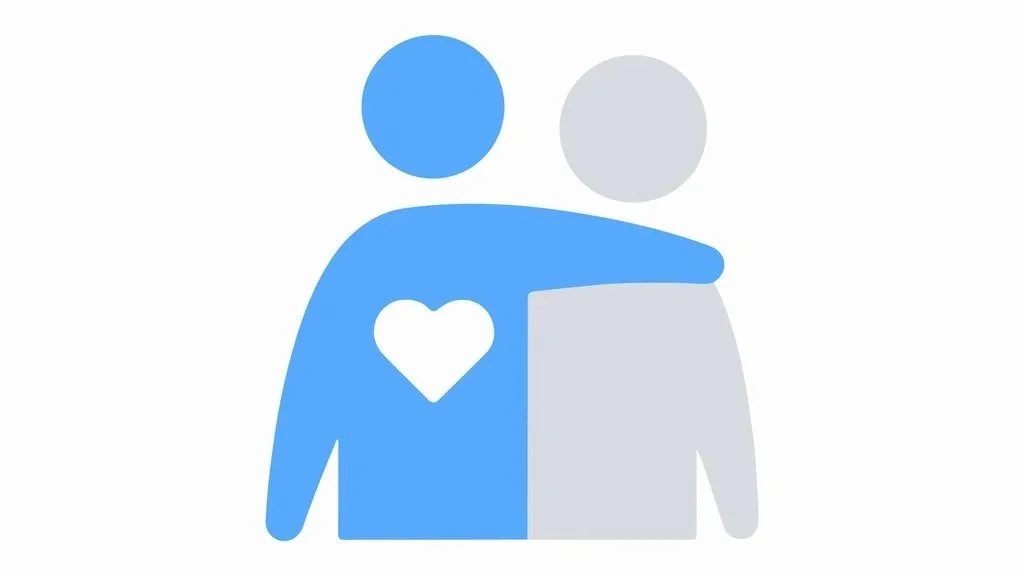Empathy
Empathy is the ability to understand and share the feelings of another person. It's about putting yourself in someone else's shoes, understanding their emotions, and seeing the world from their perspective. This means not only recognizing what someone is going through but also connecting with their emotions on a deeper level. While sympathy allows you to feel for someone, empathy asks you to see things from their point of view. When you understand what motivates and concerns your team members, you can lead more effectively.
Being empathetic is especially important in today's world because we are more connected and diverse than ever before. In a global workforce filled with people from different backgrounds, cultures, and experiences, being able to understand and relate to others fosters mutual respect and cooperation. Empathy helps us bridge cultural and social gaps, making it easier to navigate differences and create an inclusive environment where everyone feels valued.
Self-Assessment: Empathy
Please take a few moments to contemplate the following self-reflection questions. Where can you identify opportunities for personal growth in your leadership?
Do I take time to understand what others might be feeling before responding or making decisions?
How easily can I recognize when someone is frustrated, stressed, or discouraged—even if they don’t say it directly?
When I notice someone struggling, do I pause to acknowledge their emotions instead of moving straight to the task?
How often do I try to see a situation from another person’s point of view before forming my opinion?
Do I stay open and calm when someone expresses emotion that makes me uncomfortable?
How do I show genuine care or appreciation in ways that feel authentic to both me and the other person?
When giving feedback or addressing issues, do I consider how my words might affect the other person emotionally?
How aware am I of the emotional tone I set, and how it influences how people respond to me?
Remember, this self-assessment is just a starting point for understanding your knowledge of Empathy as a leader. It's essential to reflect on your responses and actively work on areas where improvement is needed. Additionally, working with your ECFL Leadership Coach or seeking feedback from a trusted mentor can provide valuable insights into your strengths and weaknesses.
“Leadership is not about being in charge. It is about taking care of those in your charge”
Leaders need to lead people. To lead effectively requires a combination of qualities and actions that inspire, motivate, and respect the well-being of those you are leading. This involves not only collaborating with others but also the willingness to cross organizational and cultural boundaries. You must create shared direction, alignment, and commitment between groups with very different histories, perspectives, values, and cultures. Approaching these actions with empathy can help guarantee success.
The first step in demonstrating empathy as a leader is to actively listen to your team members while acknowledging your emotions and adapting your responses when necessary. This involves considering the feelings of others when making decisions and consistently working to see situations from your team members' perspectives.
As Atticus Finch famously says in Harper Lee's To Kill a Mockingbird, "You can never understand someone unless you understand their point of view, climb in that person's skin, or stand and walk in that person's shoes." For leaders, this means taking into account the personal experiences and perspectives of your team members. This approach can be applied to solving problems, managing conflict, and driving innovation. Having empathy means adopting a genuine perspective in your interactions with people every day.
When we first explored Emotional Intelligence, we talked about how President Abraham Lincoln demonstrated a strong sense of empathy, making him an excellent example of empathetic leadership. One of the best examples of this is his Gettysburg Address. In just 272 words, Lincoln honored the fallen, recognized the nation's suffering during the Civil War, and reframed the conflict as a fight for freedom and equality for all. As you reflect on this powerful moment in history, think about your own leadership style. Consider how you practice empathy and the impact you have on your team and organization through your leadership choices.
Gettysburg Address
President Abraham Lincoln
Gettysburg, PA
Nov. 19th, 1863
Four score and seven years ago our fathers brought forth on this continent a new nation, conceived in liberty, and dedicated to the proposition that all men are created equal.
Now we are engaged in a great civil war, testing whether that nation, or any nation so conceived and so dedicated, can long endure. We are met on a great battlefield of that war. We have come to dedicate a portion of that field as a final resting place for those who here gave their lives that that nation might live. It is altogether fitting and proper that we should do this. But in a larger sense we cannot dedicate, we cannot consecrate, we cannot hallow this ground.
The brave men, living and dead, who struggle here have consecrated it, far above our poor power to add or detract. The world will little note, nor long remember, what we say here, but it can never forget what they did here. It is for us the living, rather, to be dedicated here to the unfinished work which they who fought here have thus far so nobly advanced.
It is rather for us to be here dedicated to the great task remaining before us, that from these honored dead we take increased devotion to that cause for which they gave the last full measure of devotion, that we here highly resolve that these dead shall not have died in vain, that this nation, under God, shall have a new birth of freedom, and that government of the people, by the people, for the people, shall not perish from the earth.
Lincoln's empathy was not seen as a sign of weakness but as a source of strength. It allowed him to communicate in a way that was both accessible and profound, to make difficult decisions with a deeper understanding of their impact, and to lead a divided nation through its darkest hour. His leadership underscores the profound power of empathy in forging connections, inspiring loyalty, and leading effectively through times of great challenge and change.
It’s important to understand that possessing empathy is different from showing it. Demonstrating empathy means truly understanding how others feel, sharing in their emotions, and responding in a way that’s appropriate and helpful. This might look like acknowledging someone's difficulty, adjusting your approach based on their emotional state, or simply being present when they need support. It's about connecting with them and responding thoughtfully, not just recognizing that emotions exist.
“You never know what someone is dealing with behind closed doors. You only know what you see or what you think you see.”
Some leaders are naturally empathetic, while others find it harder to express. Most, however, fall somewhere in between, demonstrating empathy at times but not consistently. Fortunately, empathy is a skill that can be learned and strengthened. With practice and the right support, leaders can enhance their empathy and improve their leadership skills.
Here are some best practices to help practice empathy:
Care about Other People: Show genuine concern and understanding for others. Acknowledge their feelings and validate their experiences without judgment.
Practice Active Listening: Pay full attention when others speak, avoiding interruptions or rushing to offer solutions. Listen carefully to understand what’s really being said.
Pay Attention to Nonverbal Cues: Often, how people express themselves nonverbally—through tone, body language, or facial expressions—can be more revealing than their words.
Perspective-Taking: Make an effort to see things from others’ points of view. Consider their experiences and ask yourself, “How would I feel in their situation?”
Seek Feedback: Ask your team for feedback on your communication and leadership style. Use their input to improve your empathy skills.
Build Relationships: Take time to build strong, genuine relationships with your team. Get to know them personally and show empathy in your everyday interactions.
Learn From Others: Observe leaders who are known for their empathy and emotional intelligence. Study how they communicate, manage conflicts, and support their teams.
Reflect and Increase Self-Awareness: Regularly reflect on your emotions and reactions. Consider how your actions affect others and identify areas where you can improve.
Stay Open-Minded: Be willing to learn and grow. Embrace new perspectives and feedback, and use challenging situations as opportunities to improve your empathy.
Empathy strengthens relationships, builds trust, and creates environments where people feel valued and understood. It takes intentional practice and a genuine commitment to seeing the world through others' perspectives. Because empathy plays such a critical role in effective leadership, we'll revisit it when we explore Unity. For now, consider where you are in your empathy journey. Identify one concrete way you can demonstrate it more consistently in your daily interactions. Your relationships and leadership will reflect that effort.
Reflection Questions:
Can you recall a situation where understanding someone else's perspective changed your approach to a problem?
How do you ensure that your empathy remains genuine and not just a leadership tactic?
What challenges do you face in demonstrating empathy, and how can you overcome them? How do you handle situations where you struggle to connect with someone emotionally?
Strengthen your understanding of Empathy by sticking with the following resources. Use this opportunity to note new insights and adhere to practices that will enhance your leadership journey.
A Wise Lesson In Empathy (1:51)
Understanding Empathy
Simon Sinek (22:08)









